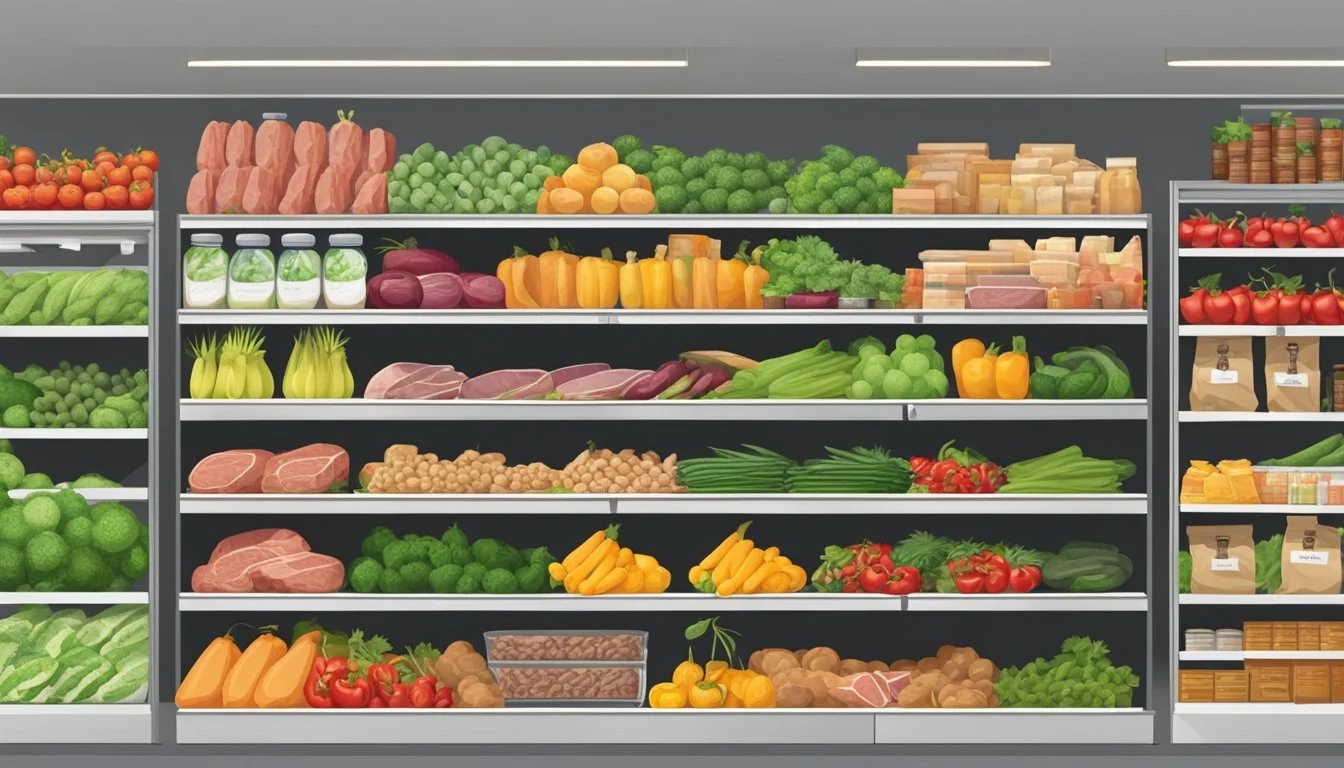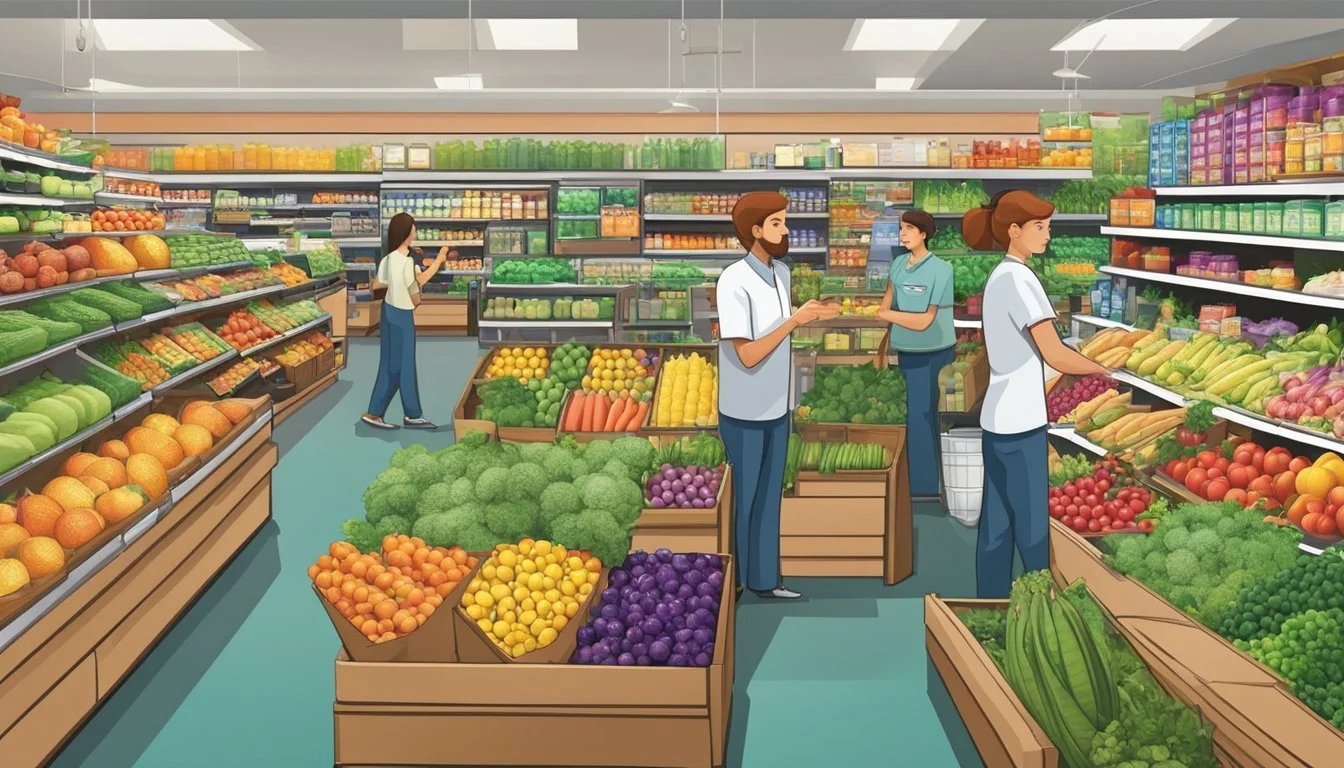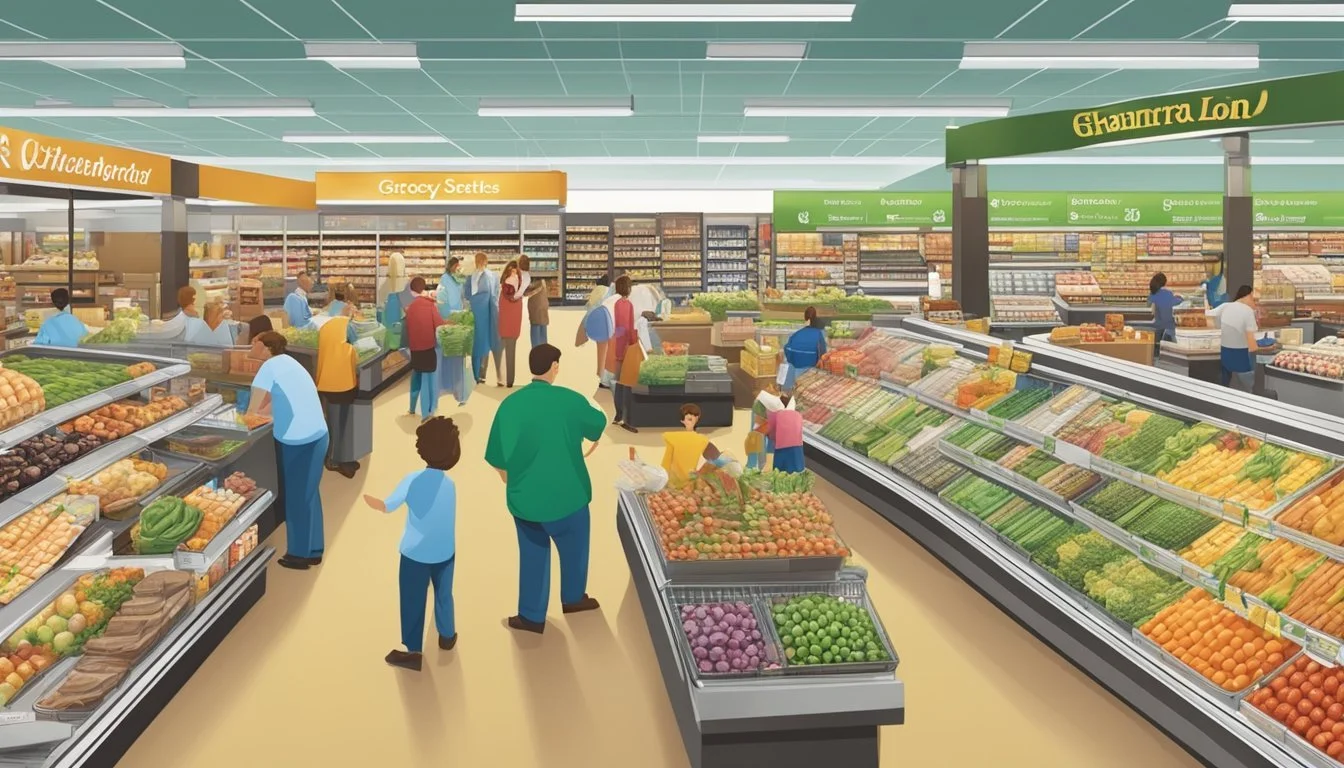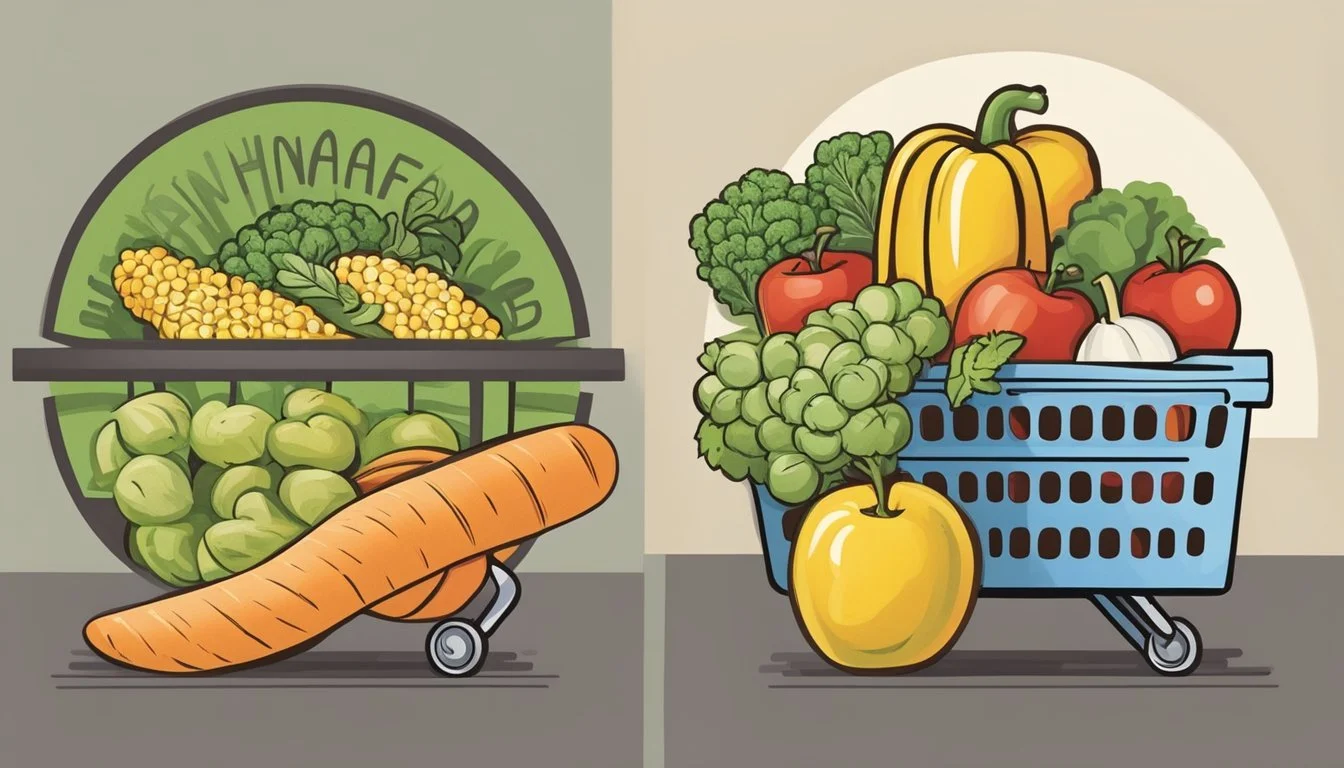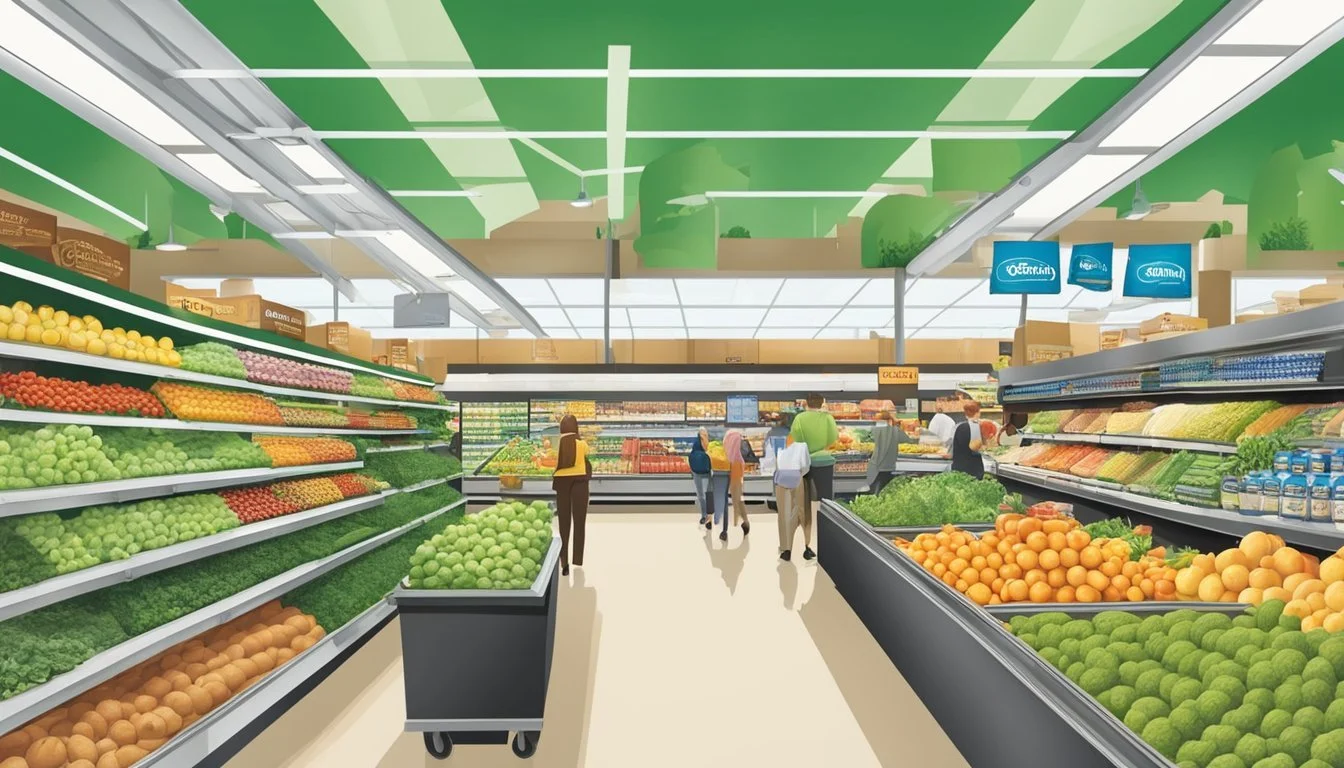Food Lion vs Hannaford
A Comprehensive Comparison of Prices, Selection, and Customer Experience
Food Lion and Hannaford are two prominent grocery store chains that compete for customers in certain regions of the United States. Both offer a range of products to meet shoppers' everyday needs, but each has its own unique attributes and customer experiences.
While Food Lion tends to focus more on value and affordability, Hannaford generally provides a shopping experience closer to higher-end supermarkets. This difference stems from their origins and target markets, with Food Lion historically catering to budget-conscious consumers and Hannaford emphasizing fresh products and customer service.
The choice between Food Lion and Hannaford often comes down to individual preferences and priorities. Shoppers seeking the lowest prices may gravitate toward Food Lion, while those who prioritize product selection and store ambiance might prefer Hannaford. Factors like store location, weekly sales, and loyalty programs can also influence which supermarket chain customers ultimately choose for their grocery shopping needs.
Company Profiles
Food Lion and Hannaford are both prominent supermarket chains in the United States. Each has its own unique history, market presence, and corporate structure.
Food Lion Overview
Food Lion was founded in 1957 in Salisbury, North Carolina, as Food Town. The company rebranded to Food Lion in 1983. It operates over 1,000 stores across 10 Southeastern and Mid-Atlantic states.
Food Lion is known for its low prices and no-frills shopping experience. The chain focuses on offering everyday essentials and local products. In 2016, Food Lion became part of Ahold Delhaize, a Dutch multinational retailer.
The company has implemented several initiatives to modernize its stores and improve customer experience. These include expanding its private label offerings and introducing digital coupons.
Hannaford Overview
Hannaford was established in 1883 as a small produce store in Portland, Maine. Today, it operates over 180 stores across five Northeastern states. The chain is known for its focus on fresh, high-quality products and customer service.
Hannaford pioneered the use of nutrition labels on store-brand products. It also emphasizes sustainability and local sourcing in its operations. The company joined Delhaize Group in 2000, which later merged with Ahold to form Ahold Delhaize in 2016.
Hannaford has invested in expanding its digital offerings, including online ordering and curbside pickup services. The chain continues to focus on providing a wide selection of organic and natural products to meet changing consumer preferences.
Location and Accessibility
Food Lion and Hannaford have distinct geographical footprints and store networks. Their locations impact accessibility for shoppers in different regions.
Store Presence
Food Lion operates approximately 1,100 stores across 10 states, primarily in the Mid-Atlantic and Southeastern United States. The chain has a strong presence in states like North Carolina, Virginia, and South Carolina.
Hannaford maintains around 180 stores, focused mainly in the Northeast. Its locations are concentrated in Maine, New Hampshire, Massachusetts, Vermont, and New York.
Food Lion tends to have more stores per state within its coverage area. This can mean shorter travel distances for many shoppers.
Geographical Reach
Food Lion covers a larger overall territory, stretching from Pennsylvania to Florida. This wider footprint makes it accessible to a broader range of customers across multiple regions.
Hannaford's more limited geographical reach means it serves a smaller portion of the country. However, it maintains a strong presence in its core New England market.
Food Lion competes with national brands and other regional chains in its territory. Hannaford faces less direct competition from major national chains in some of its more rural markets.
Both chains prioritize convenient locations within their respective regions, often situating stores in suburban and small-town areas.
Product Assortment and Availability
Food Lion and Hannaford offer diverse product selections to cater to customer needs. Both chains emphasize fresh, quality items across various departments.
Quality of Produce
Food Lion stocks a wide range of fruits and vegetables. The produce section features seasonal offerings and locally sourced items when available. Their organic selection has expanded in recent years.
Hannaford is known for its extensive produce department. They prioritize freshness and quality, often partnering with local farms. The chain offers a robust organic produce selection, including hard-to-find specialty items.
Both stores implement rigorous quality control measures. However, Hannaford tends to have a slight edge in produce variety and presentation.
Meat and Deli Selection
Food Lion provides a solid selection of meats and deli items. Their meat department offers both conventional and organic options. The deli counter features sliced meats, cheeses, and prepared salads.
Hannaford excels in this area with an expansive meat and deli section. They offer a wide variety of cuts, including premium and specialty meats. Their deli department boasts an impressive array of gourmet cheeses and house-made salads.
Both chains prioritize quality, but Hannaford typically offers a broader selection of specialty and gourmet options.
Bakery and Baked Goods
Food Lion's bakery department provides fresh bread, cakes, and pastries. They offer a mix of in-store baked items and packaged goods from popular brands.
Hannaford's bakery is more extensive, with a larger variety of artisanal breads and specialty desserts. They emphasize scratch-made items and often feature unique seasonal offerings.
While both chains ensure fresh baked goods daily, Hannaford generally offers a more diverse and upscale selection.
Dairy and Fresh Foods
Food Lion stocks a comprehensive range of dairy products. They carry major brands along with their own private label options. The selection includes milk, yogurt, cheese, and eggs.
Hannaford's dairy department is equally robust. They offer an extensive variety of organic and specialty dairy items. Their selection often includes locally sourced products and plant-based alternatives.
Both stores maintain high standards for freshness. Hannaford tends to have a slight advantage in terms of specialty and alternative dairy options.
Prepared Foods and Ready-to-Eat Selections
Food Lion offers a selection of prepared foods and ready-to-eat meals. Their options typically include rotisserie chickens, sandwiches, and pre-packaged salads.
Hannaford provides a more extensive prepared foods section. They often feature hot food bars, made-to-order sandwiches, and a wider variety of grab-and-go meals.
Both chains prioritize convenience, but Hannaford generally offers a broader range of freshly prepared options and in-store dining choices.
Pricing and Value for Money
Food Lion and Hannaford employ distinct pricing strategies and offer various ways for customers to save money. Their approaches to balancing cost and quality differ, impacting the overall value proposition for shoppers.
Price Comparison Between Stores
Food Lion consistently offers lower prices compared to many competitors. Their pricing strategy focuses on providing everyday low prices across a wide range of products. Food Lion's prices are typically 12% below the average of other surveyed stores in their operating areas.
Hannaford, while not the cheapest option, still maintains competitive pricing. Their prices tend to fall in the middle range compared to other supermarkets. Hannaford's strategy involves balancing affordable prices with a focus on quality and variety.
For a family spending $250 weekly on groceries, choosing Food Lion could potentially lead to annual savings of $1,500 to $2,000 compared to shopping at higher-priced stores.
Deals and Savings Programs
Food Lion offers the MVP rewards program, providing personalized coupons and discounts to members. They frequently run "Buy One, Get One Free" promotions and feature weekly specials on various items.
Hannaford's savings program includes digital coupons and a rewards system tied to their Hannaford Rewards credit card. They also offer weekly flyer deals and in-store promotions.
Both stores provide ways to save, but Food Lion's approach tends to emphasize more frequent and widespread discounts across product categories.
Quality vs. Cost Analysis
Food Lion prioritizes low prices, which can sometimes mean a trade-off in product quality or variety. Their store brands offer good value but may not always match the quality of premium brands.
Hannaford places a stronger emphasis on product quality, particularly in fresh departments like produce and meats. This focus on quality can result in slightly higher prices for some items compared to Food Lion.
Hannaford's approach may appeal to shoppers willing to pay a bit more for perceived higher quality, while Food Lion attracts those prioritizing affordability.
Affordability of Common Items
Food Lion typically offers lower prices on staple items like milk, bread, and eggs. Their store brand products are particularly competitive, often priced significantly below national brands.
Hannaford's prices on common items are generally reasonable but may be slightly higher than Food Lion's. However, Hannaford often provides a wider selection of brands and product types within these categories.
Both stores offer affordable options for basic groceries, but Food Lion usually edges out Hannaford in terms of pure price comparison on everyday essentials.
Customer Experience and Service Level
Food Lion and Hannaford differ in their approaches to customer service and overall shopping experience. Both chains prioritize customer satisfaction but implement distinct strategies to achieve this goal.
Store Cleanliness and Organization
Food Lion maintains a basic level of cleanliness in its stores. Aisles are typically well-organized, with products easy to locate. The company has made efforts to improve store appearance in recent years.
Hannaford, on the other hand, is known for its exceptionally clean stores. The chain places a strong emphasis on cleanliness and organization. Customers often report bright, well-lit aisles and neatly arranged products.
Both stores conduct regular cleaning schedules, but Hannaford's attention to detail in this area stands out. This commitment to cleanliness contributes positively to customer perception and overall shopping experience.
Staff Courtesy and Helpfulness
Food Lion employees generally provide adequate customer service. Staff members are trained to assist customers when asked, but the level of proactive engagement may vary between locations.
Hannaford places a higher emphasis on customer interaction. Their employees are often praised for their friendliness and willingness to help. Staff members are trained to actively engage with customers, offering assistance without being prompted.
Customer surveys consistently rate Hannaford higher in staff courtesy and helpfulness. This personalized approach contributes to a more positive shopping experience for many customers.
Checkout Efficiency
Food Lion has made improvements in checkout efficiency in recent years. The chain has invested in self-checkout options in many stores, reducing wait times during peak hours.
Hannaford is known for its efficient checkout process. The company trains cashiers to be quick and accurate, minimizing delays. Many Hannaford stores also offer self-checkout options.
Both chains monitor checkout wait times and adjust staffing accordingly. However, customer feedback often indicates shorter wait times and smoother transactions at Hannaford stores.
Brand Reputation and Market Presence
Food Lion and Hannaford have established distinct reputations in their respective markets. Their brand perception and regional footprints shape how consumers view and interact with these grocery chains.
Consumer Satisfaction Ratings
Food Lion has worked to improve its image in recent years. The chain focuses on offering low prices and convenient locations. In customer surveys, Food Lion often receives average ratings for overall satisfaction. Shoppers appreciate the store's everyday low prices but sometimes cite concerns about product variety and store cleanliness.
Hannaford typically scores higher in consumer satisfaction ratings. The chain is known for its fresh produce, high-quality store brands, and customer service. A Consumer Reports survey ranked Hannaford among the top supermarket chains for overall satisfaction. Customers particularly praise Hannaford's cleanliness and organization.
Supermarket Chain Rankings
In industry rankings, Food Lion and Hannaford occupy different tiers. Food Lion, with approximately 1,100 stores across 10 states, is considered a major regional player. The chain competes directly with other value-focused grocers like Aldi and Lidl.
Hannaford, though smaller with about 180 stores, often ranks higher in quality-focused evaluations. Industry publications frequently place Hannaford in the upper echelons of supermarket chains. The store's emphasis on fresh, local products and sustainability initiatives contributes to its strong reputation in the Northeast.
Additional Services
Food Lion and Hannaford offer various extra services to enhance the shopping experience. These include convenient delivery options and loyalty programs to reward frequent customers.
Grocery Delivery Options
Food Lion partners with Instacart to provide home delivery services. Customers can order groceries online or through the Instacart app for same-day delivery. The service is available in most areas where Food Lion operates.
Hannaford also offers grocery delivery through Instacart in many locations. Additionally, they provide a curbside pickup service called Hannaford To Go at select stores. Customers can place orders online and pick up their groceries without entering the store.
Both chains have expanded their delivery options in recent years to compete with Amazon Prime's grocery delivery services.
Membership and Loyalty Programs
Food Lion's MVP Rewards program allows customers to earn points on purchases. These points can be redeemed for discounts on groceries or gas at participating stations. The program is free to join and offers digital coupons and personalized deals.
Hannaford's loyalty program is called My Hannaford Rewards. Members earn 2% back on most store brand purchases. The program also provides access to exclusive deals and digital coupons. Like Food Lion's program, it's free to sign up.
Both loyalty programs aim to incentivize repeat customers and compete with Amazon Prime's benefits in the grocery sector.
Corporate Responsibility and Sustainability
Food Lion and Hannaford demonstrate strong commitments to sustainability and corporate responsibility. Both grocery chains have implemented initiatives to reduce waste and improve environmental practices.
Food Lion announced ambitious sustainability goals in 2021. These include reducing food waste, increasing sourcing transparency, and cutting carbon emissions. The company aims to make it easier for customers to choose products aligned with priorities like using less plastic.
Hannaford has made notable progress in sustainable packaging. In 2021, the chain transitioned its store-brand fresh chicken from foam trays to more recyclable PET rigid trays. This change reflects a broader effort to minimize environmental impact.
Both retailers have focused on recycling efforts. Food Lion shared its sustainability progress on Global Recycling Day in 2024, highlighting its initiatives over the past year. Hannaford's parent company, Delhaize America, reported that 35% of its private brand food met sustainability standards by 2014.
These efforts extend beyond environmental concerns. Both chains prioritize sustainable sourcing and offering healthier choices to customers. Their initiatives demonstrate a holistic approach to corporate responsibility, balancing environmental, social, and economic factors.
Food Lion and Hannaford continue to set and pursue sustainability targets. Their ongoing efforts reflect the growing importance of corporate responsibility in the grocery sector.
Conclusion
Food Lion and Hannaford both offer unique strengths as grocery stores. Food Lion excels in providing affordable options and convenient locations for everyday shopping needs. Their loyalty program and weekly deals appeal to budget-conscious consumers.
Hannaford stands out for its focus on fresh, high-quality produce and locally sourced items. Their stores often feature wider aisles and a more upscale shopping experience. Health-conscious shoppers appreciate Hannaford's extensive organic and natural food selections.
Price-wise, Food Lion generally offers lower prices on staple items and household goods. Hannaford may have higher prices overall but provides value through its emphasis on premium and specialty products.
Store layouts and cleanliness can vary by location for both chains. However, Hannaford typically maintains a more consistent standard across its stores.
The choice between Food Lion and Hannaford ultimately depends on individual preferences and priorities. Those seeking the lowest prices may prefer Food Lion, while shoppers valuing product quality and variety might lean towards Hannaford.
Both chains have their merits, and many customers shop at both depending on their needs. The recent acquisition of Hannaford by Food Lion's parent company may lead to future changes in their offerings and operations.



